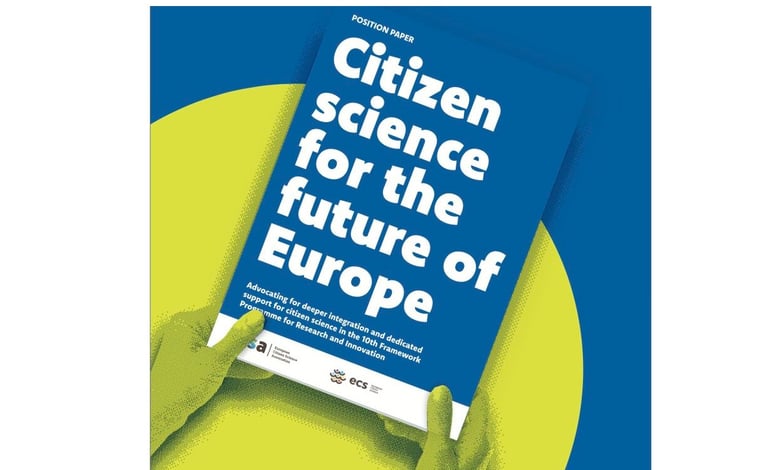Insights from the Scicomm arena
Science communication (Scicomm) encompasses all the ways science is shared beyond academic circles—through public talks, articles, exhibits, audio-visual storytelling, and digital platforms. One of the most dynamic outcomes of Scicomm is its ability to foster citizen science—the active participation of everyday people in scientific research. As interest in citizen science expands, so do expectations — for inclusivity, scientific rigor, and long-term impact. Recognizing this momentum, the European Citizen Science Association (ECSA) has published a position paper highlighting the importance of citizen science in advancing research, societal engagement, and democratic policymaking. It also presents recommendations for FP10 (the next EU Framework Programme), calling for a more robust, inclusive, and participatory approach to science...... Read more
5/15/20251 min read
At its heart, Scicomm is about making science accessible, engaging, and relevant to all members of society
Science communication (Scicomm) encompasses all the ways science is shared beyond academic circles—through public talks, articles, exhibits, audio-visual storytelling, and digital platforms. One of the most dynamic outcomes of Scicomm is its ability to foster citizen science—the active participation of everyday people in scientific research. From students testing water quality to volunteers monitoring biodiversity, these initiatives transform passive audiences into collaborators in knowledge creation. The Scicomm arena is a collaborative and evolving space where scientists learn to communicate more clearly, young people are empowered through real-world science education, and citizens contribute meaningful data to support sustainability, health, and policy efforts. Here, multiple sectors — education, research, government, industry, and civil society — intersect and exchange knowledge. Over the past two decades, citizen science has grown significantly, fueled by technological innovation (mobile apps, open data, online platforms. Social shifts toward openness and collaboration and strong institutional support from European Union programs and national governments gave bolstered the growth and appeal of Citizen Science. However, challenges still remain. As interest in citizen science expands, so do expectations — for inclusivity, scientific rigor, and long-term impact. Recognizing this momentum, the European Citizen Science Association (ECSA) has published a position paper highlighting the importance of citizen science in advancing research, societal engagement, and democratic policymaking. It also presents recommendations for FP10 (the next EU Framework Programme), calling for a more robust, inclusive, and participatory approach to science.
Download the full paper here: Position Paper on Citizen Science and FP10 https://citizensciencefp10.eu/wp-content/uploads/2025/04/PositionPaper.pdf


Connect
Explore innovative blue school projects and funding.
Engage
Collaborate
© 2025. All rights reserved.
